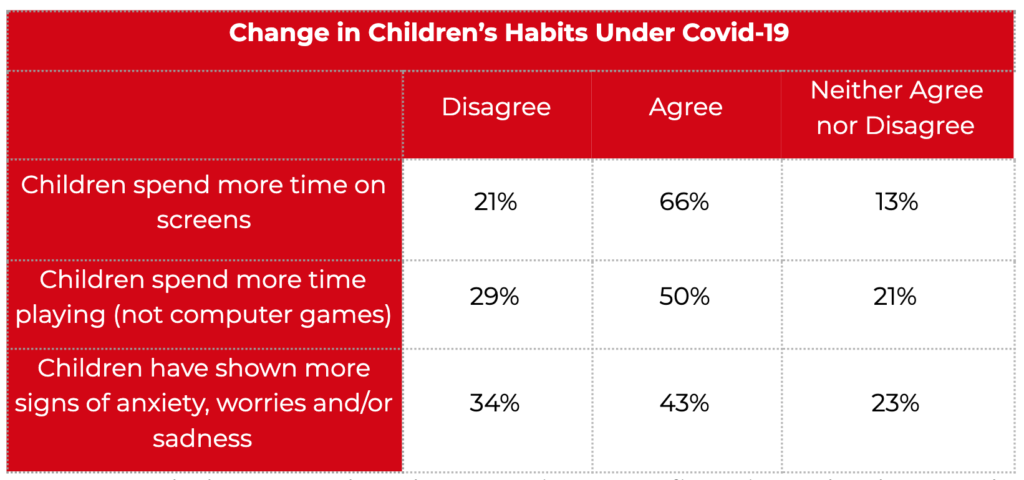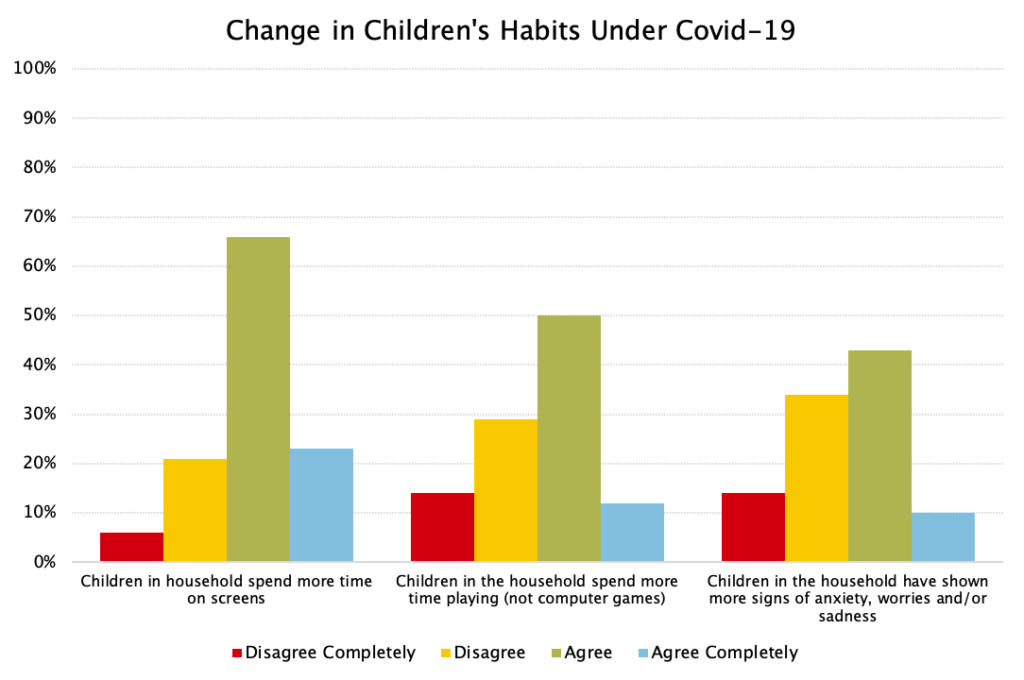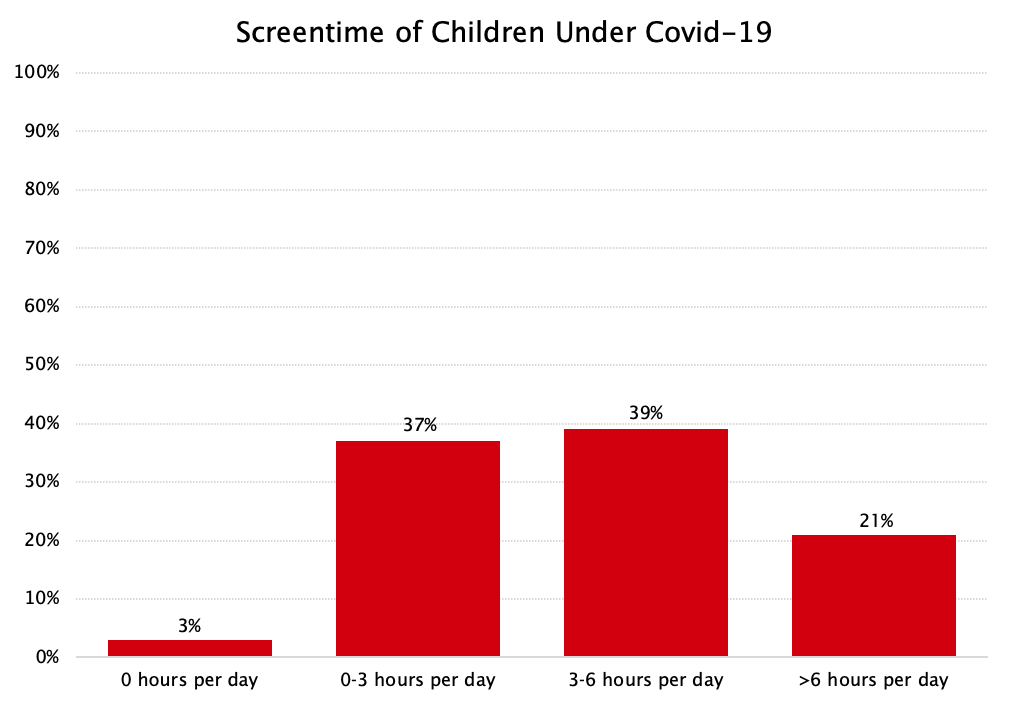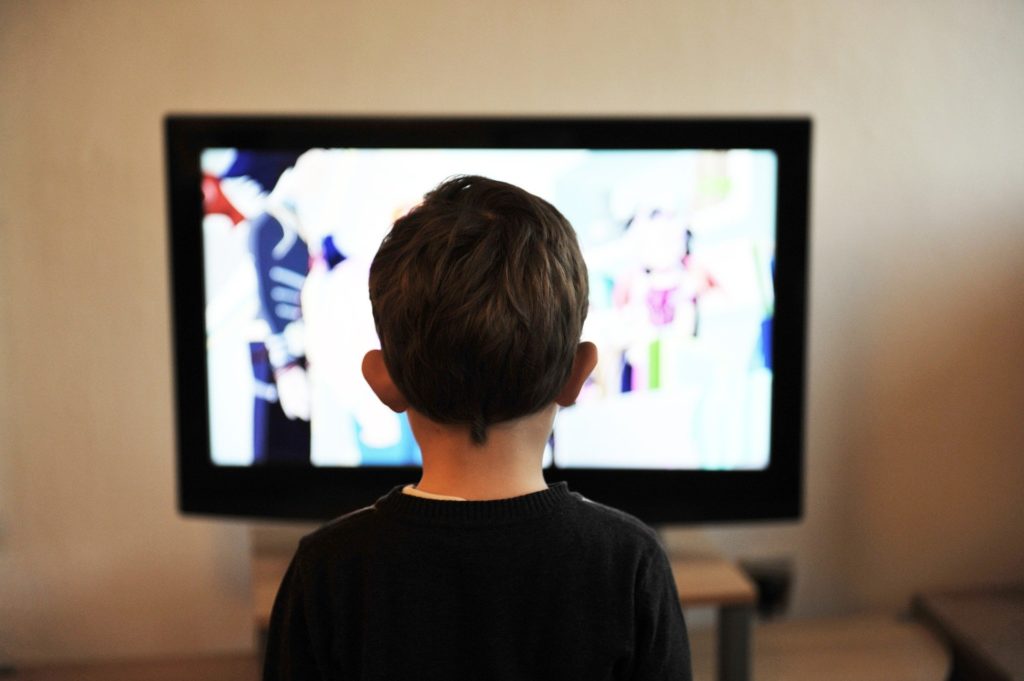A new international poll reveals over 60% of children spend more than the WHO-recommended hours on screens under quarantine.
Compared to the recommended 2 hours per day, children under 18 years old spend at least 3 hours on screens during quarantine on average.
21% of parents report that their children spend over 6 hours on screens.

Side-effects of excessive screen time include childhood obesity, sleep problems, negative behavioral and emotional impacts, and lower academic performances.
43% of parents reported a decrease in children’s off-screen activities during the COVID-19 outbreak.
More than 50% of parents agree that children have experienced signs of anxiety, sadness, and worry as a result of self-isolation.
Interactive audio player specialist Tonies.com has released a new dataset revealing how the COVID-19 outbreak influenced children’s screen time habits and sentiments. With experience providing children with off-screen entertainment options, it has helped children find an alternative to screens by innovating audiobooks and storytelling.
As the pandemic continues to shut down schools and limited children’s leisure activities, parents have relaxed screen time rules to maintain a sense of normalcy at home. However, imbalanced media uses for children comes at the cost of an impaired attention span and cognitive development. Restricted activities can also bring out feelings of sadness, anxiety, irritability, and frustration.
To better understand how children today are coping with the coronavirus outbreak, Tonies.com has conducted a poll asking parents about the change in children’s digital habits and emotions.
How the study was conducted:
An anonymous opinion poll was sent to respondents over the age of 18 in the European Union, United Kingdom, and the United States between April 21 and May 10. Parents were asked a series of key questions on their child’s recent behavior pattern under quarantine pertaining to screen consumption, physical activity, and emotional well-being.
The questions are as follows:
To what extent do you agree or disagree with the following statements: Compared to BEFORE the COVID-19 pandemic started on March 13?
- The children living with me have been eating less healthily
- The children living with me spend more time watching TV or other screens
- The children living with me spend more time playing (NOT computer games)
- The children living with me have shown more signs of anxiety, worries and/or sadness

Respondents were given the opportunity to respond on a 5-point scale ranging from: “Completely Disagree”, “Somewhat Disagree”, “Neither Agree nor Disagree”, “Somewhat Agree”, and “Completely Agree”.

During the last seven days, how much time do the children living with you spend daily watching any kind of screen- including TV, computer screens, mobile phones etc.
Respondents were given the opportunity to respond on a 4-point scale ranging from “0 Hours”, “0-3 hours per day”, “3-6 hours per day”, and “more than 6 hours per day”.

Also on Coast to Coast
-
A Cup A Day: Managing Diabetes One Beverage at a Time
-
Episode 27 of Coast to Coast: Checking out the Galleri Classic & Summer Travel Inspiration with Dalia Colón!
-
Coast to Coast Kicks Back at GBK Brand Bar’s Pre-Oscar Luxury Lounge
-
Coast to Coast Checks Out the Best of Sprouts with Nutritionist Cara Harbstreet
-
Episode 22 of Coast to Coast: Setting Sail on the Icon of the Seas & 29 Palms Travel Inspiration
